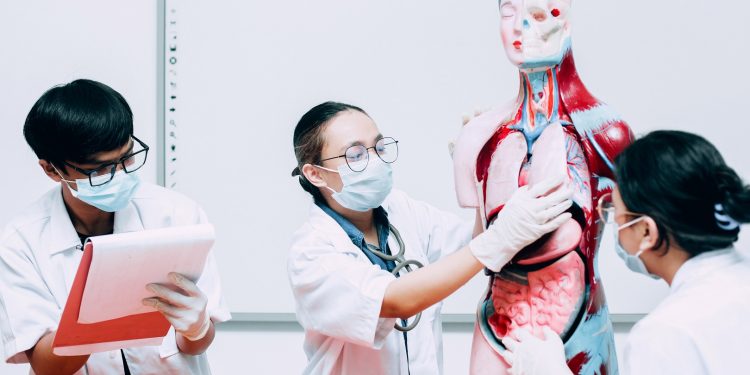5 lesser known Facts about Human Body
The human body is a complex and fascinating organism, and despite decades of scientific research, there is still much that remains unknown. While many of us are familiar with the basics of human anatomy and physiology, there are still countless lesser-known facts that are equally intriguing. In this topic, we will explore some of these little-known facts about the human body, shedding light on the intricacies and wonders of our biological makeup. From our unique sensory abilities to our surprising regenerative powers, these facts will give you a new appreciation for the complexity and beauty of the human body.
The Brain’s Storage Capacity
The human brain is one of the most complex and fascinating organs in the body, responsible for a wide range of functions such as movement, sensation, thought, and emotion. One of the most impressive aspects of the brain is its ability to store and retrieve vast amounts of information. Despite its relatively small size, the brain is capable of holding an incredible amount of data, with estimates of its storage capacity ranging from several terabytes to as much as 2.5 petabytes.
While the exact storage capacity of the brain is difficult to quantify, research has shown that the brain has a remarkable ability to create and maintain neural connections, enabling us to store and retrieve memories and other types of information. This process is known as synaptic plasticity, and it involves the strengthening or weakening of connections between neurons in response to experiences and stimuli.
In this essay, we will explore some of the lesser-known facts about the human brain and its storage capacity, highlighting the amazing abilities of this incredible organ.
The Importance of Hiccups
Hiccups, although often considered annoying, serve an important physiological purpose in the body. They are involuntary contractions of the diaphragm muscle, which separates the chest cavity from the abdominal cavity, followed by the sudden closure of the vocal cords, which produces the characteristic “hic” sound. While the exact purpose of hiccups is still a topic of debate among scientists, several theories suggest that they may help to protect the body from certain harmful situations.
One theory is that hiccups help to prevent the inhalation of harmful substances, such as smoke or noxious gases. Another theory suggests that hiccups aid in the digestion of food by helping to expel trapped air from the stomach. Hiccups may also serve as a form of communication between humans, as they can occur in response to social cues or emotional stress.
Although hiccups are usually harmless and self-limiting, in some cases they can persist for an extended period of time and be indicative of an underlying medical condition. If hiccups persist for more than 48 hours, medical attention should be sought to rule out any underlying causes.
The Mysteries of the Belly Button
The belly button, or navel, is a unique feature of the human body that has puzzled scientists and ordinary people alike for many years. While it may seem like just a small indentation in the middle of our abdomen, the belly button is actually a fascinating part of the body with a lot of secrets to uncover.
One of the mysteries surrounding the belly button is its purpose. We all have a belly button, but why? The answer lies in our development as embryos. When we are in the womb, the belly button is where the umbilical cord attaches us to our mother’s placenta. Through this cord, we receive nutrients and oxygen from our mother’s bloodstream. After we are born, the umbilical cord is cut, and the belly button remains as a scar.
But the belly button is more than just a scar. It is also home to a diverse array of bacteria that make up our microbiome. This microbiome plays a critical role in our digestive and immune systems, and researchers are only just beginning to scratch the surface of how it may impact our overall health.
So the next time you look at your belly button, take a moment to appreciate this small but important part of your body. It may be a mystery, but it is also a reminder of our shared beginnings and the incredible complexity of the human body.
The Role of the Nose in Memory
Did you know that your sense of smell is directly connected to your memory? The olfactory bulb, responsible for processing smell, is connected to the hippocampus and amygdala, which play important roles in memory and emotion regulation. This connection means that smells can trigger vivid memories and emotions, often more strongly than other senses.
Interestingly, research has shown that certain smells can improve memory and cognitive function. For example, the scent of rosemary has been found to improve memory and alertness, while the aroma of peppermint has been shown to enhance attention and mental performance.
So next time you catch a whiff of something familiar, take a moment to breathe it in and see if it triggers any memories or emotions. Your nose might just be the key to unlocking forgotten moments in your past.
Conclusion
In conclusion, the human body is a remarkable and complex organism, with many fascinating aspects that are still being discovered and studied by scientists and medical professionals. These five lesser-known facts about the human body, from the brain’s storage capacity to the role of the nose in memory, demonstrate just how much there is still to learn and appreciate about our own biology. By continuing to explore and understand these mysteries, we can deepen our appreciation for the incredible capabilities of the human body, and gain new insights into how to optimize our health and wellbeing.











Discussion about this post